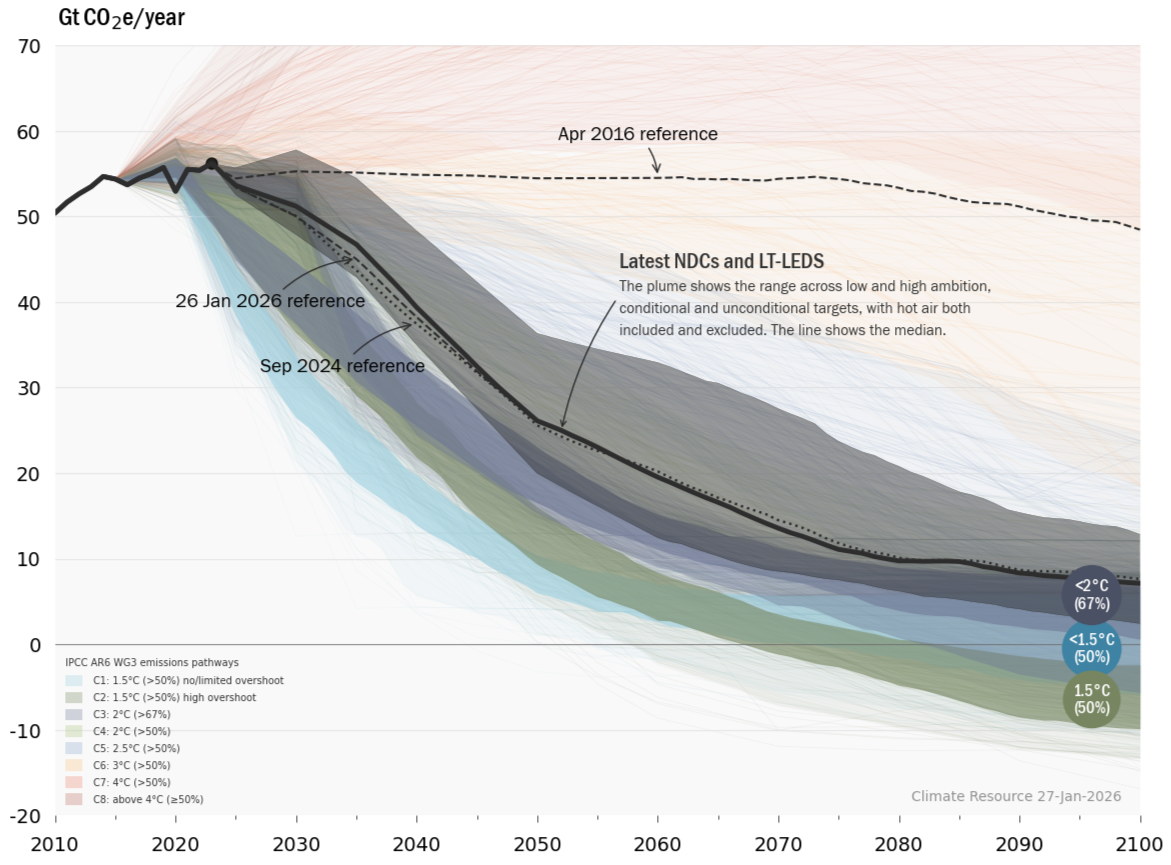

What we do
Implied warming

We project the temperature rise that results from emissions and energy-transition scenarios using MAGICC, one of the world’s most widely used and respected reduced-complexity climate models. MAGICC has supported climate science and policy for more than 30 years and has been used throughout assessment processes of the Intergovernmental Panel on Climate Change, including the Sixth Assessment Report.
Our staff have been the core developers of MAGICC since 2004. We support multilateral institutions, advisory firms and other organisations to assess the warming implications of their emissions pathways.
Regional climate impact data

We produce high-resolution regional climate impact projections, including for temperature, precipitation and sea level rise, to support physical climate risk analysis. Using the best available science, we estimate impacts at the warming levels and spatial scales most relevant to our clients and collaborators.
Sectoral decarbonisation pathways

We derive transition pathways for energy and energy-intensive sectors at a global level and for major emitters. We provide these at the sub-sectoral level relevant to policy and investment risks. For policy makers and investors, it shows the changes in the physical economy to achieve emissions targets, and limit warming.
Emissions data

We produce authoritative, widely used emissions datasets for all countries, tracking historical emissions since 1750 and projecting trajectories to 2050 based on national targets. Our data underpins major international assessments, including the UNEP Emissions Gap Report, and is referenced in metrics used across the finance sector.
We synthesise results from global and country-specific modelling and help clients and collaborators access, use and understand the data, including how projections are changing and why.
Models, data and platforms

We build and maintain some of the world’s most widely used climate models and datasets. We develop software interfaces and provide expert support so clients and collaborators can access, understand and apply these tools and insights in their work.
Enabling global climate science

We play a leading role in parts of CMIP7, the global collaboration that brings together the world’s climate modelling centres to prepare the science underpinning upcoming assessments by the Intergovernmental Panel on Climate Change.
Our team develops datasets built from satellite and ground-based observations, and creates methods and software to rapidly evaluate and benchmark Earth system models. MAGICC is also linked with major economic and energy models, enabling consistent comparison of emissions and climate outcomes across scenarios.
Our models and data
Climate Resource makes climate science usable for real-world decisions.
Historical emissions
Emissions projections
Sectoral decarbonisation pathways
Assessment of warming implications
Earth System Model input datasets
Earth System Model evaluation
Regional climate impacts
Articles
Latest News
One year on: How the US Paris exit reshapes global climate projections

New report: Australia’s coal outlook in a warming world

Reliance on Land in NDCs: 2025 Land Gap Report
Publications
Latest publications

Systematic Benchmarking of Climate Models: Methodologies, Applications, and New Directions
